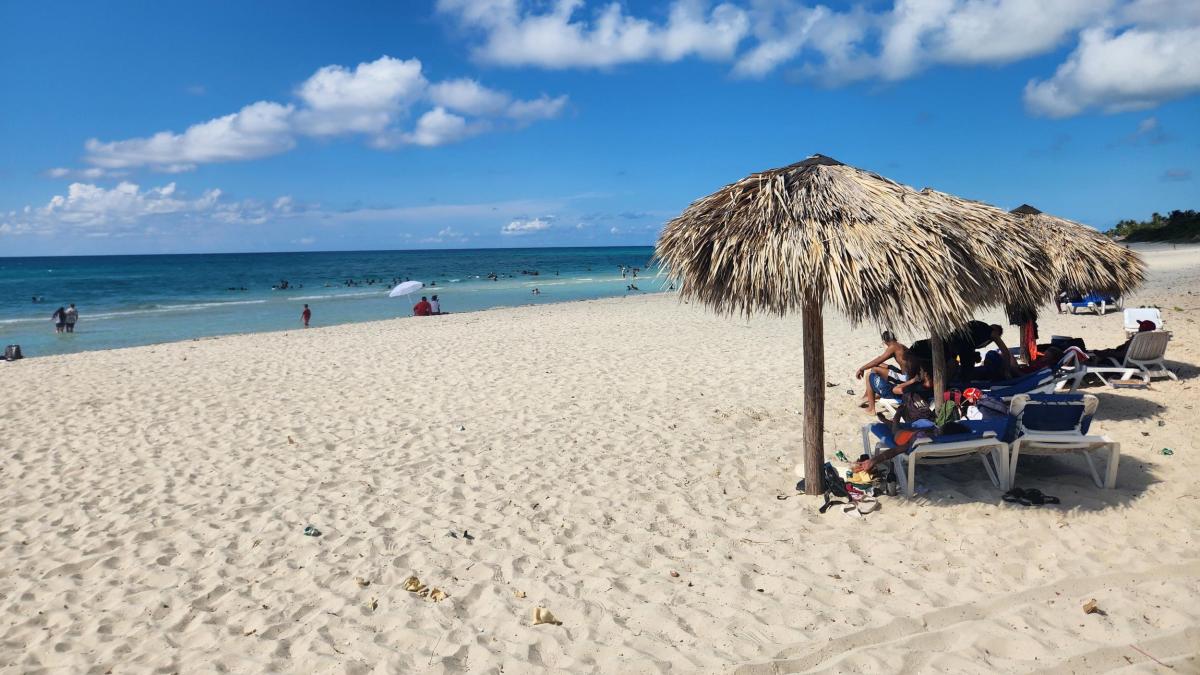Varguably, there aren’t much more beautiful beaches than the resort town of Varadero on more than 20 kilometers of white sand and turquoise waters along Cuba’s north coast. Cuba has plenty of fantastic scenery to offer. This also includes the sea promenade of the capital Havana – along which visitors like to be driven up and down in vintage cars – as well as protected natural areas such as in the Viñales Valley and colonial buildings in the city of Trinidad, for example.
Music à la Buena Vista Social Club and cocktails like mojitos and daiquirís create their own flair. There is also no shortage of luxury hotels in Cuba today – although you have to make significant compromises when it comes to internet access and the quality of the food. In Old Havana, expect to be approached every few steps by someone trying to sell you something – a cab ride, money exchange, cigars, prostitutes.
The socialist Caribbean island is heavily dependent on tourism and has suffered tremendously from its collapse in the pandemic. Unlike other countries in the region, such as the Dominican Republic, Cuba is only slowly recovering from this. This probably has something to do with the fact that the one-party state is currently making a name for itself primarily with hardship, decay, repression and mass exodus.
A holiday there is also not cheap. Canada is the most important country of origin, but many visitors also come from Germany – although it is now difficult for them to enter the USA after visiting Cuba.
Everyday life in Cuba is characterized by scarcity
“I can’t go to Cuba and expect to get everything I want here without any preparation,” says Christopher Trinczek, founder and managing director of the Berlin tour operator Cuba Buddy. Together with the state tourism agency Cubanacán, they organize individually tailored trips to Cuba for groups of two to four people on average. He points out that due to the lack of fuel and vehicles, you can’t even just rent a car and drive in Cuba.
For Trinczek, the best thing about a visit to Cuba is the contact with the people – this gives you important insights into how to be happy away from luxury and wealth. Overnight stays in family-run guesthouses are therefore an important part of the trips his company offers. That’s a good way to get into conversation with people, says Trinczek in the Cuba Buddy office in Havana.
64 years after Fidel Castro’s revolution, life in Cuba is hard. The rule of the Communist Party, the US embargo and, most recently, severe inflation have created an everyday life characterized by shortages – for example of food, medicine, fuel, machine parts, and the capacity to generate electricity.
Locals hardly benefit from tourists
The travel journalist Paco Nadal wrote in the Spanish newspaper “El País” in April that one should go to Cuba; tourists hardly notice the problems of the population. A small group of Cuban exiles, including well-known dissidents, threw the paper out in a letter proposes to gloss over the precarious living conditions of the Cubans and state repression. “Your paradise, my prison,” they said.
Martin Lessenthin, Cuba expert and member of the board of trustees of the German Institute for Human Rights, is also extremely critical of tourism in Cuba. “The Cuban people hardly benefit from the foreign exchange that Western vacationers bring to the Caribbean island,” he emphasizes. “On the contrary: the foreign exchange is used to stabilize the repressive apparatus, and the profits are reaped by the party and military power elite and their minions, who totally control the tourism sector.”
Lessenthin refers to the crackdown on peaceful protests in Cuba in July 2021 and the imprisonment of hundreds of participants – including the German-Cuban Luis Frómeta from Dresden, who received 15 years in prison for filming violence against demonstrators. “Those who want to travel the Caribbean as a tourist with a clear conscience will find many alternatives to dictatorial Cuba.”
Contact with Cubans on vacation recommended
Amelia Calzadilla says that those who deal directly with tourists benefit from tourism. The 32-year-old mother of three from Havana used to be a tourist guide and recently drew attention to herself with videos on Facebook in which she denounced the abuses in Cuba – which is why she received death threats and can no longer get a job in the tourism sector. “Tourism workers can use the tips they receive from foreigners to buy products that are only sold in foreign currencies,” she says.
The contact with tourists was also instructive for her, says Calzadilla. “Thanks to my clients, I’ve learned different truths about capitalism” than what she was taught in school. Calzadilla emphasizes that those who earn the most from Cuba tourism are the foreign tour operators who employ Cubans under local conditions through partnerships with state-owned companies.
Anyone interested in visiting Cuba must be prepared for restrictions – such as a lack of products, power outages and mobility restrictions due to the lack of fuel. Anyone who wants to come anyway should try to get in touch with the people and help them, says Calzadilla. “The best thing about Cuba is the Cubans.”




